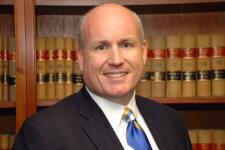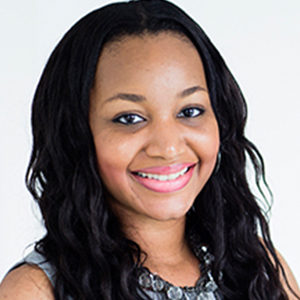LM Feature: Chris Nichols | Nichols Law Firm
 Congratulations are in order for Chris Nichols, who just finished his term as President of the North Carolina Advocates for Justice. We recently had an opportunity to talk to him about his year as President and the impact it has had on his career.
Congratulations are in order for Chris Nichols, who just finished his term as President of the North Carolina Advocates for Justice. We recently had an opportunity to talk to him about his year as President and the impact it has had on his career.
LM: You designed your annual convention to be especially appealing to millennials, even going as far as to give it an identity, #JusticeCon, and to have customized superheroes walking around. What was your goal?
CN: Why, more fun, of course! Ok, while that was certainly part of the goal, over the last year of my presidency of the Advocates for Justice (formerly the NC Academy of Trial Lawyers) my presidential theme was “the new lawyer.” This meant, most of the time, “the millennial lawyer.” So organizationally we focused and themed many of our normal programming to better fit the needs of newer lawyers entering the work force. We studied the sociological data on millennials and we polled our millennial members to see how we might better serve them and recruit them as members. We found that new lawyers are looking for real connections, and despite being the electronic generation, they preferred IRL (in real life) interaction. Our millennials wanted phone calls, not emails. And they wanted practical hands on education because the previous century's model of new lawyers learning law from senior partners for the first few years of their practice is not the norm. New lawyers are hanging their shingles and learning on the go. So calling our annual meeting #JusticeCon was really the final nod to the millennials- we hear them, and we are adapting. I'm 47 years old, by the way, so I'm an X-gen who grew up in a very computer savvy household of early adapters. Some of my generational peers are not tech oriented.
LM: What are some of the biggest misconceptions people have about millennials and associations?
CN: After a year of delving deep into generational psychology, probably the biggest misconception, at least about millennial lawyers (as opposed to other professions) is the mistaken impression that millennial lawyers are “delicate little snowflakes” who all “expect a participation trophy” for simply showing up at work. That stero-type is completely backward. As one millennial put it to me, “We have student loan debts larger than most boomers’ mortgages, there are no jobs, the economy tanked when we were in college, and we all feel pretty sure we won't achieve what our parents and grandparents achieved. Did anyone in your law graduating class consider it a huge victory to get a 6-month position doing document review on graduation?” As to the participation trophy, the best retort I heard to that was a young lawyer saying, “I'm so sick of hearing that. It's not like we gave ourselves trophies! Which generation should get the blame for handing out the trophies? Our parents'!”
When millennials first entered the workforce, there was a misconception that they would not join associations. For a while, nationally, that was true. Then, after a few years, millennial participation in professional organizations picked up. It turns out that millennials don't join things simply for the sake of joining things, like boomers have done. Millennials will happily join organizations if they see practical value and return on investment and they are personally asked to join. It's a good thing for membership organizations- they must change the way they do things or get left in a generational chasm.
LM: How have you managed to keep NCAJ relevant during a time when many associations struggle?
CN: I have been a small part in a greater movement to keep NCAJ relevant. NCAJ has an incredible staff and volunteer members who are never satisfied with “good enough.” NCAJ has three core missions: Education, Advocacy and Community. Education has always been the core mission of NCAJ; to provide topical, practical and excellent CLE for lawyers who represent civil plaintiffs and criminal defendants. Because the law is constantly evolving and juror attitudes rise and fall like the tides, our member taught CLE is continually striving for new ways to teach our members to be the best lawyers they can be. Attending a CLE is usually the first impression potential members have of our organization and always sports a great conversion rate for new members. Advocacy and Community have complimented each other as our organization has lobbied to preserve the average citizen's right to access the courts and to preserve the rights of the criminally accused. Our members have forged deep bonds with each other by working together to expand rights in our state. We also work hard to provide social gatherings where all generations of trial lawyers can meet, find friends and also potentially cross refer matters. During the last year we worked very hard to identify lawyers in our community who were not members but who should be members because of their practices. We reached out to them in multiple ways, including personal invitations from local members. This showed off our greatest asset- our members!
LM: What is NCAJ doing to attract new members and how valuable do you feel associations are to the legal community?
CN: Today's lawyers live in a constant state of information overflow. When I teach young lawyers, I tell them that the practice of law is really a daily legal triage of sorting through the many demands put on the lawyer and somehow (miraculously, it seems at times) helping the clients who need the most help while also figuring out a way to make a living.
That's a long lead up to saying that one of the biggest challenges that NCAJ faces is making sure members (and potential members) know of the huge selection of member benefits we offer. I've been a member of many organizations where even long time members say “Hey, I had a great idea! Why don't we start doing _________?” And a staff member says “We already do that.”
That's not a programming issue. That's a communications issue. Back when I started practicing, you had snail mail and occasionally a “fax blast” with offerings. Now we struggle simply to delete unread emails each day. The solution is not to raise the volume of information. The trick is that the organization must speak in a voice which can be heard and understood by the target audience. We don't do “one size fits all” as much. Now we micro-target our audiences and we speak to them in the language they tell us they want to hear. For some, that's Facebook. Others, post cards. Sometimes it is a blast email, and sometimes its having one member call someone up and say “hey, we haven't met, but I noticed during motions hearings today....and I wanted you to know that a program exists that might help on that issue in the future.” In the immortal words of Dr. Seuss from Green Eggs and Ham, “try it try it, and you'll see...”
LM: Most Presidents look for a signature project; you were involved in establishing a commission to examine mass incarceration. You brought a national speaker, Cynthia Jones to the convention. Jones is a national expert on the subject matter and founder and Executive Director of the Pretrial Racial Justice Initiative. Tell us more about this project.
CN: I always tell new lawyers that the kind of law you practice often finds you, rather than you find it. I found that also to be true of the projects that come out of the Presidency of the Advocates. I'm a civil lawyer. My main area of practice is serious personal injury, representing victims of sex abuse, arbitration, and insurance bad faith cases. So how did I wind up starting a committee to look at mass incarceration issues? Well, it started with some member inquiries as to what NCAJ was doing about this far reaching problem. Our organization was instrumental in starting NC-CRED (the North Carolina Commission on Racial and Ethnic Disparities in the criminal justice system.) NC-CRED is dedicated to understanding how racial minorities are disproportionately represented in the criminal and juvenile justice systems. They conduct detailed studies that account for all potential explanations, including socio-economic factors. If they find disparities, they make recommendations for change.
NC-CRED is separate from NCAJ and our members wanted to be doing more internally on issues that impact our clients. Our members see the direct effects of the School to Prison Pipeline (how zero tolerance rules in school systems lead to suspensions and drop outs and eventually jail), Raise the Age (only NC and NY treat all 16 year olds as adults in the criminal system), and how the practices of setting bonds for alleged offenders can have a massive impact on poverty and crime in our state. Our members are on the front lines and because they understand the system may have the best opportunity to effect change. As a result, we passed a resolution recognizing the many facets of mass incarceration, that race plays a major part of this problem, and started a Task Force on Mass Incarceration to determine how our members could be involved.
Cynthia Jones is a professor at American University Washington College of Law. Professor Jones is the President of The Sentencing Project Board of Directors, serves on the governing board of the Pretrial Justice Institute and is a former Vice President of the Board of Directors of the Mid-Atlantic Innocence Project. Professor Jones is also the founder and Executive Director of the Pretrial Racial Justice Initiative, a grant-funded project created to address racial disparities in the bail process. When we asked Professor Jones to speak at our summer convention, we asked her to give us practical advice. To tell us what a civil lawyer could do to help mass incarceration. It would be impossible to summarize all she said, but one short version of it is this: when people commit low level non-violent crimes, they can sit in jail or post bonds. Even when those bonds are a few hundred dollars, many accused cannot afford them. They then sit in jail and lose housing, jobs, and cars. Even if they are then found not guilty, they emerge with nothing, furthering the poverty cycle. Professor Jones made many practical suggestions to combat this practice which disproportionately effects people of color. Among those suggestions was forming community groups to monitor bonds and collect data on the criteria used to set bonds in court. She suggested that the very act of looking at the bonds might change some of the disparities. She also suggested that community groups could form day centers where the accused check in daily in exchange for low or no bond.
Our Mass Incarceration Task Force looks forward to implementing some of these strategies.
LM: What has been your biggest accomplishment as NCAJ President?
CN: Ending the year with a surplus budget while at the same time expanding services to our members and maintaining our overall membership size in a time when other organizations are shrinking. This is not an individual accomplishment, it takes a lot of team work and planning from our members and professional staff. And I hope that members felt enthusiastic about the organization and the critical missions we serve.
LM: Changing directions for a moment, you started your own firm over 10 years ago, what advice would you give to an attorney who is thinking about branching out and starting their own firm?
CN: Keep your overhead low. Technology can provide some amazing ways to save on overhead, from virtual receptionists to remote working. It's tempting to sign leases and buy things that lawyers are “supposed” to have, but a lot of these things are more about ego than necessity. At the end of the day, your clients will be a lot more impressed with excellent personal service then they will be with gold bonded letterhead.
LM: Where do you see the future of law?
CN: I think that the practice of law is going through a market correction right now. Particularly in North Carolina where we had the unfortunate confluence of a massive recession with the creation of several new law schools. On the upside, our population grew as North Carolina is viewed as a hot new place to live and work. On the downside, we have a lot of lawyers who cannot find jobs, or lawyers who can barely afford to be lawyers. I have great hope that this is leveling out. I know that law school applications are down over the last several years. I think this shows that the market (college graduates) understand that getting the law degree is not a guarantee of future financial success.
So what do we do about it? I think that lawyers have to stick together and help each other. The model that worked for so long of the summer clerkship followed by the job offer and a few years to learn the ropes as an associate is no longer the norm. New lawyers are hanging out shingles in unprecedented numbers. So organizations like NCAJ need to step in to do the education that law firms used to do internally. And lawyers have to reach out to each other in court rooms and help when it is obvious that another lawyer is floundering. I’m not suggesting you aid opposing counsel, but I am suggesting that if a lawyer missed a big issue and you happened to be sitting there waiting for your case to be called, you should consider politely following up and offering a suggestion.
Lawyers will always be necessary. We are the mirror to society. If suddenly (and miraculously) humans all started honoring every promise and following every law, many of us would be out of business. History tells us we have good job security.
LM: During the annual convention, you spoke frequently about building community among members. Why is that so important to you?
CN: As I pointed out in the previous question, it's tough out there in the world for lawyers. We really do have to care for each other, even when we oppose each other. We all know how lawyers suffer from horrendous levels of job dissatisfaction, depression and suicide. And we know that partly that is because we have an unforgiving job- we all juggle multiple critical deadlines every day of our career. The consequences are dire for our clients. So we have to build community and support.
Being a lawyer can be a lonely job. We all have to put forth this persona that nothing bothers us and we know exactly what we are doing all the time. But really, nobody is 100% certain all the time. Community gives us the ability to let down our defenses a little. Talk like real people, stop posturing, maybe even relax. Community can come from professional organizations, local bar groups, or even informal groups that meet online because of their shared areas of the law. Community lives in listservs. It is important to recognize this and encourage it. If you are not part of a community, consider joining one.
LM: Is there anything I haven’t asked that you would like to add?
CN: You've asked really good questions. I guess the only thing I would add, which all of your questions touched on is this: I hope that every lawyer who reads this takes a second to think of a colleague they've been meaning to catch up with, or compliment, or thank, and that they reach out and do that. It's always the right time to tell someone that they mean a lot to you or how they shaped your professional life. Or reach out to a lawyer or legal professional who might need a pep talk. We all have to stick together! You'll feel better, they will feel better. And if you are interested in NCAJ or any of the work in this article, feel free to send me an email: Chris@NicholsTrialLaw.com
Chris Nichols is a trial lawyer and the Immediate Past President of the North Carolina Advocates for Justice. Visit his website at www.nicholstriallaw.com.




